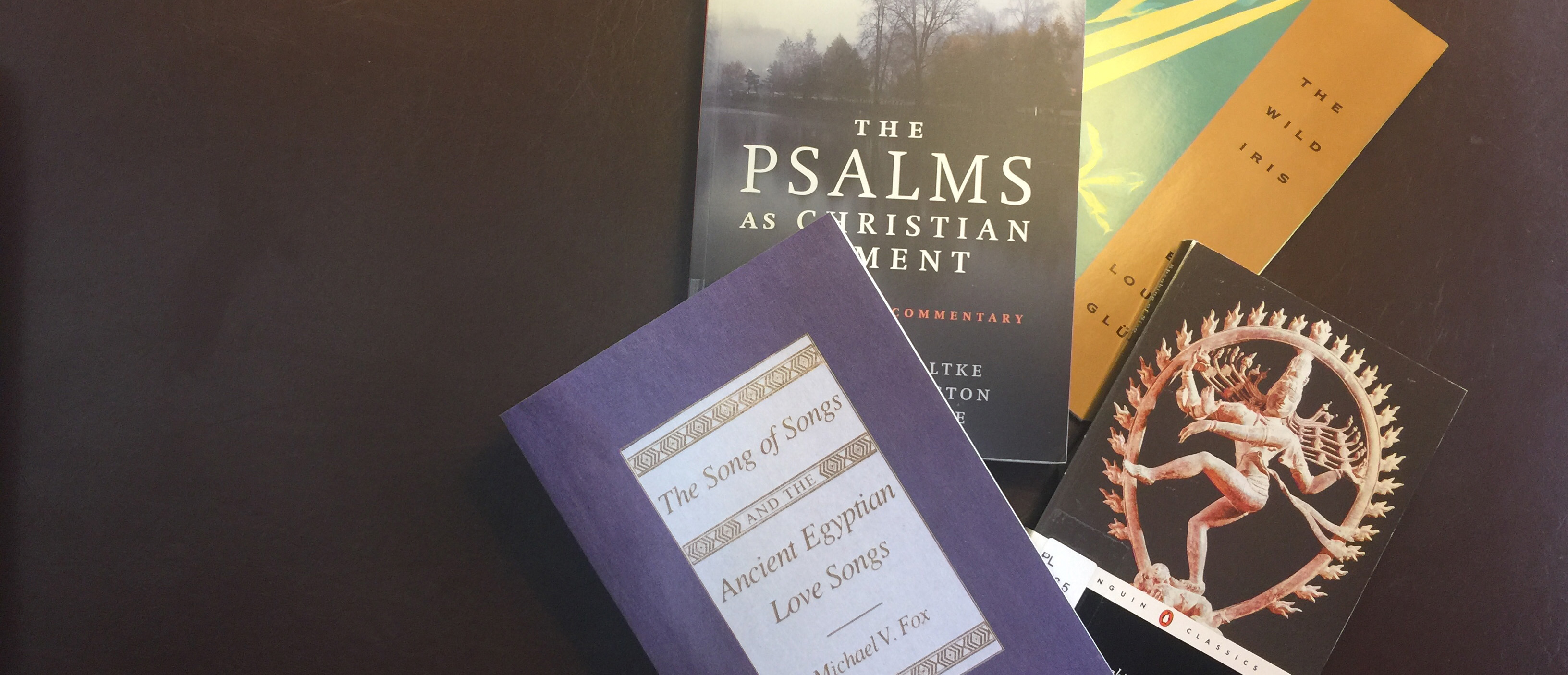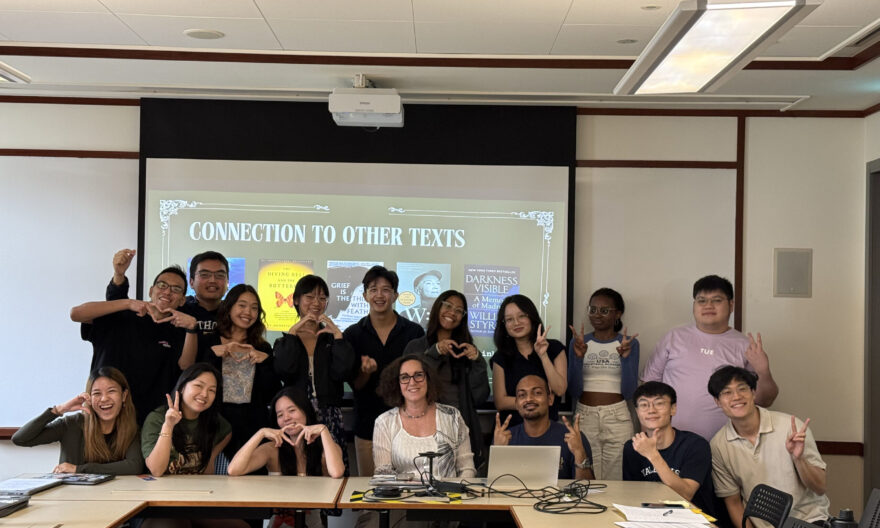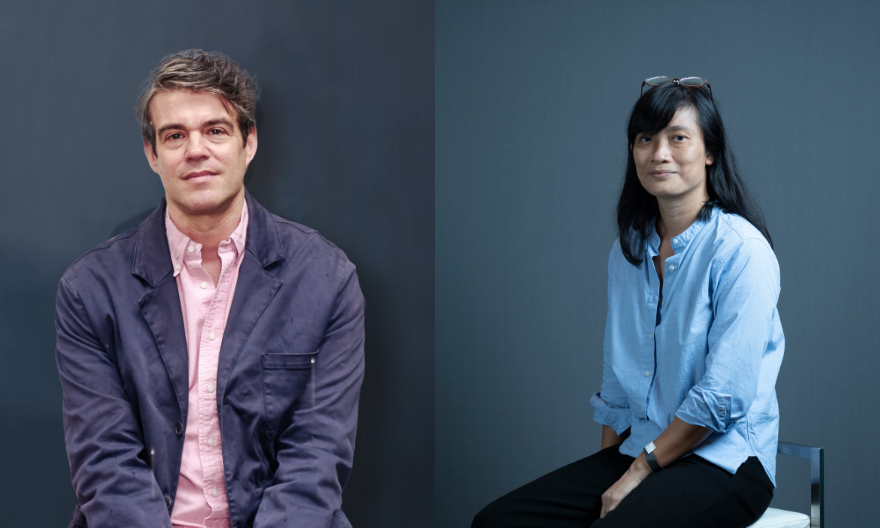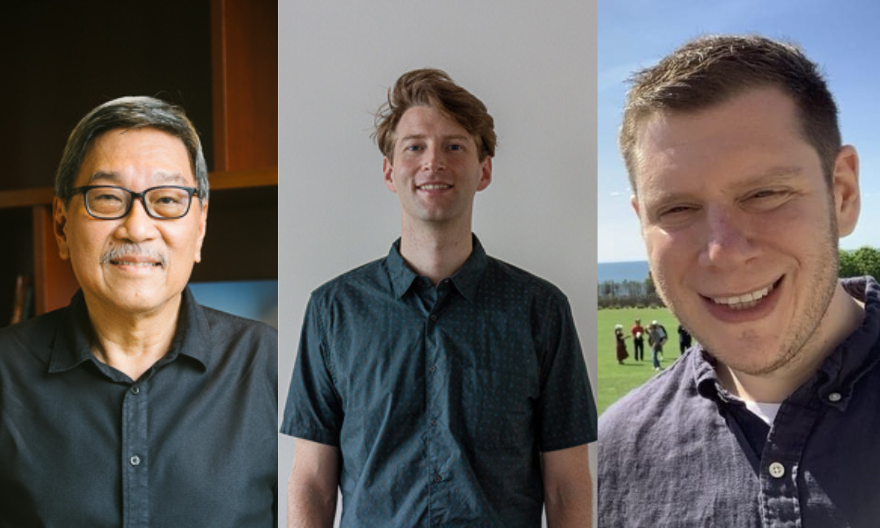Of haikus and hymns: Students explore religious poetry across faiths and borders

Last semester, Sarah Kiu (Class of 2018) was reading familiar texts like the Song of Songs (Shijing) and the Book of Psalms, which she had earlier encountered in the Common Curriculum. At the same time, she also had the chance to read and study other religious texts like the Vedic Hymns and Buddhist poetry.
These texts were part of a novel class ‘World Religious Poetry’, collaboratively created and taught by Assistant Professor of Literature Andrew Hui and Yap Kim Hao Professor of Comparative Religious Studies Gavin Flood.
According to Professor Flood, the idea came up when the two were talking about topics of shared interest.
“One of the great things about the College is that with its small size, we have lots of informal discussions over the dining hall meals, seminars, chance encounters in the hallways and so forth. I knew Gavin’s work even before he came to the College and so I was thrilled to have not only someone who’s not only a deep expert in Tantric Hinduism but a true intellectual who explores the philosophy and hermeneutics of religion expansively and cross-culturally,” added Dr Hui.
What appealed to Sarah most about the class was the choice of texts curated for the class. “The diversity of the texts was compelling and I looked forward to learning about the poetic traditions of different religions in light of each other. It is difficult not to be captivated by the balance of emotion and artistry found in these poetic voices, and the manner in which these themes that are never far from our experience as human beings are manifested in these texts,” she shared.
For Thu Truong (Class of 2018), who is majoring in Literature, the class offered an interdisciplinary experience of religion through a literary lens.
“I study the Classics and the classical reception in the Western canon, and my research requires me to have some background in theology. World Religious Poetry offered me the rare opportunity to look at religions and theological studies through a literary lens, and literature through a theological lens, for which I deeply appreciate,” Thu shared.
“This course also connects with other classes I’ve taken so far quite nicely, especially with my research on Dante, whose work I have been reading for the last two years.”
The course spanned poetic traditions of three major world religions: Christianity, Hinduism and Buddhism. The comparative element was also what excited Thu, who thought it a “perfect embodiment” of the Yale-NUS values of an interdisciplinary and intercultural approach to education.
“To see that different poetic traditions share so many things in common was not only enlightening, but heartwarming as well. Despite the distinctiveness of the three religions, Professor Flood and Dr Hui always drew connections between different units and encouraged us to look at one religion through another,” she explained.
“The course itself, though very much focused on the literary aspect of the scriptures, also involved a theological and anthropological approach as well, and students were welcome to bring in their experience from other fields as they saw fit.”
According to Dr Hui, there was no preconceived theme that he had in mind when planning the syllabus with Professor Flood. Instead, it was what he referred to as a “magical chemistry” during class discussions that led to a fulfilling experience for both professors and students.
“As the weeks progressed, certain problems and issues emerged and repeated themselves. This was due to the magical chemistry among the students who were attuned to their own insights; the texts; and the two of us – mix them all together and you have fresh discoveries every seminar,” he shared.
“I firmly believe that when you rub certain texts together, they will produce sparks that would not have occurred, had you studied them in isolation.”
It was also this “magical chemistry” that Thu enjoyed even more than the poetry that she had the chance to read during the semester. “Professor Flood and Dr Hui gave us a wonderful academic environment in class, and I admire their insight and inquisitiveness even in areas they may not be expert in. Whenever one of them gave lectures, the other would play the part of a mentor and guide the class along with brilliant questions, and I’m grateful to both professors for their commitment to the class,” she shared.
The works that Sarah enjoyed most during the course include the passionate vacanas of Mahadeviyakka, a 12th-century Siva-adherent as well as Jesuit priest Francis X Clooney’s wonderful book His Hiding Place is Darkness, a comparative theological study on the theme of absence in Hindu-Catholic theopoetics.
“I am thankful for this course as it not only provided me with an academic space to analyse these religious poems, but also taught me how to appreciate their artistry and passion.” she added.
One of the biggest takeaways for Thu was being reminded of her experience with a cross-cultural and interdisciplinary mode of academic inquiry.
“The fact that it was cross-cultural—cross-religious, that is—reminded me so much of our common curriculum. The idea of bridging the East and West, of finding our shared humanity, is much more than a checklist of things we have in common. It is only after we understand one that we can understand the other, and I’m happy to have lived that experience again in our World Religious Poetry class,” she reflected.
From this experience working with Professor Flood, Professor Hui plans to put together an anthology titled The Longing for the Infinite: An Anthology of World Religious Poetry.




